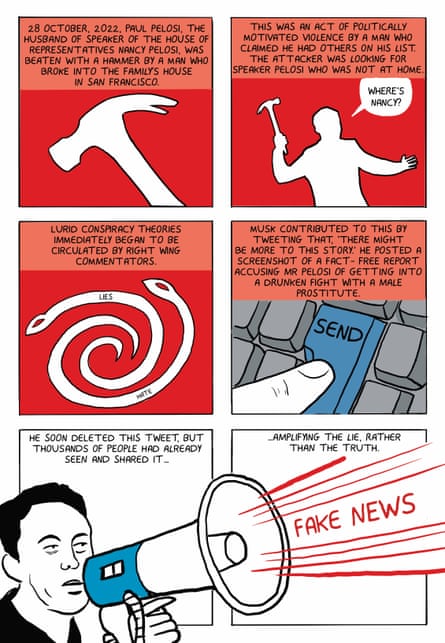David Barnett , The Guardian; ‘We live in a climate of fear’: graphic novelist’s Elon Musk book can’t find UK or US publisher
"A biography by a British graphic novelist of Elon Musk is struggling to find an English-language publisher due to feared “legal consequences”.
Elon Musk: Investigation into a New Master of the World is the latest graphic novel by Darryl Cunningham, from West Yorkshire. Cunningham, 64, has written and illustrated seven nonfiction books on topics ranging from the 2008 global economic meltdown (Supercrash), to Russian leader Vladimir Putin (subtitled The Rise of a Dictator)...

“Delcourt had lawyers go over every single word and picture to make sure there were no problems. I didn’t use any information that hadn’t been published elsewhere, much of it from the book by Musk’s own mother, Maye.
“But it looks like we live in a climate of fear where the worst people have immense power, and because of this there’s a tendency for the individuals, institutions, businesses and the state to run for cover.”
Cunningham praised Delcourt, who also put out the French edition of his book on Putin, for “having the courage” to publish the book...
Cunningham said: “Knowing what I know about the man, my conclusion is that it’s incredible that such a mediocre figure can amass such wealth, but it was ever thus.”"